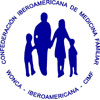Conception of mental health among professionals of family health in sertão paraibano
Resumo
Introduction: Continuous care and eventual counselling involving mental health represent a significant portion of the activities of staff that work in the Family Health Strategy. Thus, when thinking about the role that primary care plays in caring for people with mental disorders and psychological distress, it is important to understand the conception of mental health among professionals in this environment.
Objective: To identify the conception of mental health professionals in the Family Health Strategy, Support Center for Family Health and Residence of Family Medicine and Community at the Alto Sertão Paraibano.
Methodology or experience description: Qualitative research using focus groups composed of different teams of Family Health Strategy and resident physicians from October to November 2013 in Cajazeiras, Paraíba. The groups were instructed based on cases simulating treatments in the basic health unit and their speech motivated by guiding questions. The speeches were analyzed from the framework of critical discourse analysis, in a Foucauldian perspective to analyze the power relations existing in the teams and the community with the aim to see the influence of these relations on their concepts of health and disease.
Results: In their speech, the professionals highlighted the social causes of mental illness process, emphasizing factors such as social class. Mental disorder is perceived through symptoms of distress such as insomnia, sadness and tearfulness. The idea of someone mad being dangerous arises recurrently in speeches. Moreover, topics like harm reduction concerning drug abuse also appear and even the idea of care focusing on the person instead of the disease is needed, as opposed to the prevalent practise of extreme medicalization in mental health care, restricting them to prescription refills.
Conclusions or Hypothesis: The focus groups enabled a greater understanding of the concept of mental health among health professionals of the population studied. It can be noticed in the speech that the concepts tied to the old hospice model of care coexist with the new paradigm of mental health, showing the need and potential to work with the professionals of the Family Health Strategy for ensuring a better quality of care.
Palavras-chave
Texto completo:
PDF (English)Apontamentos
- Não há apontamentos.
Este periódico é de responsabilidade das associações:
Apoio institucional:







